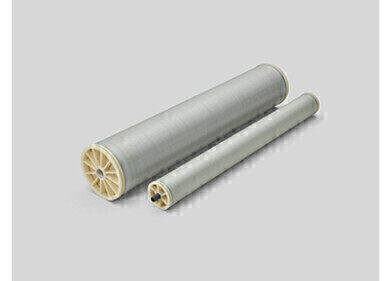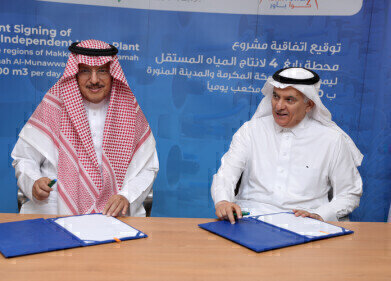Desalination
Siemens Successfully Concludes R&D Project on Low-energy Seawater Desalination: Technology Ready for Full-scale Testing
Jul 14 2011
Having set a new energy saving benchmark for seawater desalination, Siemens (Germany) is now poised to transition their ground-breaking technology to the product development phase. As a result of an R&D initiative that commenced in October 2008, a demonstration plant was built in Singapore to treat seawater to drinking water quality. The results, which will be presented at Singapore International Water Week, show that the new process reduces desalting energy by over 50% compared to best available technology. The next step for Siemens is to set up a full-scale system in cooperation with Singapore’s national water agency PUB by 2013.
In Singapore, which is an island nation, and in other regions, seawater is becoming increasingly important in replenishing the supply of drinking water. However, to desalinate it for potable use is an extremely energy-intensive process. "Our new technology marks a revolution in seawater desalination," said Ruediger Knauf, Vice President of Siemens Water Technologies’ Global R&D. "The results of our pilot facility show that the new process not only functions in the laboratory but also on a larger scale in the field. Because of its high energy efficiency and thus good CO2 footprint, electrochemical seawater desalination can play a major role in regions suffering from freshwater shortages."
Since December 2010, the Siemens demonstration unit has been treating 50 m3 of seawater per day at a PUB facility in Singapore. The project goal was to produce World Health Organization standard drinking water quality from seawater, at the same time cutting energy consumption by half compared to current technologies. Instead of using reverse osmosis, which requires highpressure pumps to force water through semi-permeable membranes, the Siemens engineers turned to electrochemical desalination. The process combines Electrodialysis (ED) and Continuous Electrodeionization (CEDI), both applying an electric field to draw sodium and chloride ions across ion exchange membranes and out of the water. As the water itself does not have to pass through the membranes, the process can be run at low pressure, and hence low power consumption.
The seawater is pre-treated with a self-cleaning disk filter, followed by Memcor ultrafiltration modules. The pilot desalination plant is composed of three ED units arranged in series to handle high concentrations of salt. They are followed by three CEDI units assembled in a parallel flow configuration to remove smaller amounts of salt. The energy demand of the whole process including pumping, pre-treatment, desalting, and post-treatment is less than half of what is used by the best available seawater desalination technologies today, which is typically between 3.4 - 4.8 kWh/m3. Besides the energy savings, other advantages are low vibration and noise levels, improved safety, and only minimal pre- and post-treatment.
These achievements have been attained in close partnership with Singapore’s national water agency PUB and Singapore’s Environment & Water Industry Programme Office (EWI), which awarded an R&D grant to co-fund Siemens as a result of a Challenge Call in 2007. "We are very pleased that our joined efforts have come to fruition and show such promising results," said Harry Seah, Director Technology and Water Quality of PUB. "Now we are working with Siemens Water Technologies to construct a full-scale customer pilot in our upcoming desalination testing facility in Tuas." Setting up this pilot by 2013 is the next milestone in transitioning the electrochemical desalination technology to a viable product offering.
The Challenge Call is part of EWI’s focus to raise Singapore’s status as a global hydrohub with R&D as the key driver. With a research funding of S$330 million from the National Research Foundation, EWI aims to create a vibrant and thriving R&D landscape in Singapore.
Events
Aug 24 2025 Stockholm, Sweden and online
Aug 27 2025 Busan, South Korea
Sep 02 2025 Mexico City, Mexico
Sep 02 2025 Mexico City, Mexico
Sep 09 2025 Moscow, Russia







-from-Landia-are-on-their-way-to-Estonia.jpg)





